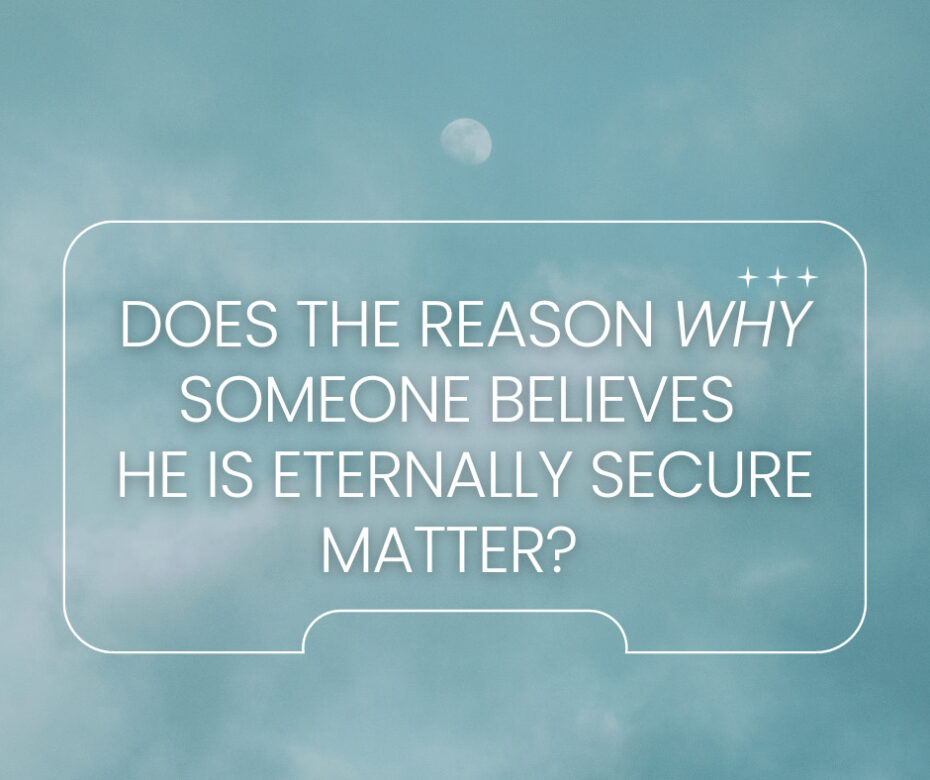M. H. asks a great question:
I recently viewed a couple of your blogs where you talked about how someone only needs to believe in Jesus to be saved, including eternal security.
If someone believes that they cannot lose their salvation (will never perish, will never be condemned, etc.), is that considered true belief if that belief is not based on the promise of Jesus, like in John 3:16?
What if someone says they believe they have eternal life because of Jesus and can never lose it because they know Jesus died on the cross for their sins?
Or what if they say they believe Jesus gives eternal life because His death covered their sins and He rose again on the third day?
Does the reason for someone’s believing he is eternally secure matter?
Of course, it does.
If someone believes he is eternally secure for the wrong reason, he does not believe in Jesus for everlasting life/irrevocable salvation.
Consider these actual examples that I’ve heard:
I know I’ll persevere in good works because I would never turn my back on Christ. That is the wrong reason for a person to believe he’s eternally secure. This person is not born again unless he has previously believed in the promise of life.
God is love, and everyone will be saved, including me. That is the wrong reason. This person is not yet born again unless he has previously believed in the promise of life
God spoke to me and told me that I will persevere. Again, that is the wrong reason. He is not born again unless he has previously believed in Jesus’ promise of everlasting life.
The examples M. H. gives are not crystal-clear regarding assurance of everlasting life. If someone says, “I have eternal life,” he may mean I have it right now, but I can lose it. Likewise, “Jesus gives eternal life,” does not indicate that it’s secure. Both statements could be made by someone who does not believe his salvation is irrevocable.
However, M. H. seems to mean that the person in question was sure he was eternally secure, but for a reason other than Jesus’ promise. I’ll proceed on that assumption.
Anyone who says he knows he is eternally secure because Jesus died on the cross for his sins and rose from the dead also knows and believes in His promise of everlasting life to the believer. Otherwise, he would not know that he is eternally secure. There are 2.4 billion professing Christians who believe Jesus died for their sins and rose from the dead. However, 90% of those do not believe they are eternally secure.
One final point. I talked with Mike Lii during a ten-mile walk on Saturday, and he made an interesting point. He said that most hypothetical questions are not based on the questioner’s actual experience. For example, “If someone believes in a frog named Jesus for everlasting life, is he born again?” Well, there is no actual example like that. “If someone believes that Jesús, his gardener, guarantees his eternal destiny, is he saved?” Again, there is no such person.
I’ve not met someone who believes he is eternally secure apart from believing Jesus’ promise of life. I doubt M. H. has either. Belief in Jesus’ death and resurrection can and should lead people to believe in Him for everlasting life. But, sadly, it is quite common for someone to believe in Jesus’ death and resurrection but not in His promise of everlasting life.


